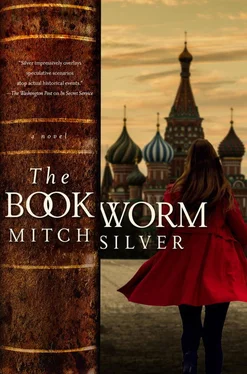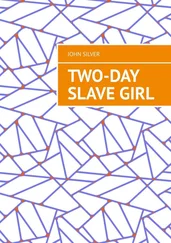“And Hitler knows all this?”
“I doubt he knows any of this. But when they tell him, and they will, he’ll believe it. Everything is destiny with him—you saw the way he begged Marlene, his good-luck charm, to come back to Germany.”
Kennedy freshened my drink from the bottle on the rolling bar. “Look Noël, I have to go up to Cambridge and graduate from college next week. You’re the one who’s going over to raise morale. Not being invaded would raise their morale, wouldn’t it?”
In my journal entry the next day I wrote, “Maybe it was the lateness of the hour, but I let myself get caught up in the idiocy of the moment. This boy could sell ice cubes to the Eskimos. I found myself saying, ‘Ummm, how would this work, exactly?’”
After ten more minutes, I promised to see what I could do. We hauled Marlene out without her face and I gave her a farewell hug and a kiss. But I still had my doubts. Turning back to the lovers at the door, I asked Jack how he knew so much about French kings and mystics: “What did you study up there at Harvard? History?”
He wrapped his arm around the shoulder of the woman beside him, pulling her close to him, and grinned. “International Relations.”
I sailed for Southampton in the morning.
Chapter 15

London
The newsreader was beside herself, blond curls aflutter, positively quivering with the excitement: “The mysterious find at the Inns of Court has deadly consequences: family of three found shot to death in Brixton.” The News at Noon film editor had had a field day, cutting from the Gordon house in Brixton as the bodies were brought out to the file footage of Mr. Gordon at the work site the day before and back again.
There was speculation as to the connection between the two events and the usual interviews with the shocked neighbors. Then it was back to the studio. “DNA testing has ascertained the wrist bone unearthed yesterday is approximately one hundred years old; Metropolitan Police have further determined the handcuff affixed to it is one couriers used in the war to secure attaché cases to their persons. In addition, the BBC have learned the building housing barristers that was originally on the site took a direct hit from a V-2 rocket in 1944.”
Then it was back to Brixton for the stand-up with the police spokesman: “All right-thinking Londoners are shocked at today’s developments. We ask anyone who has information to come forward and assist the police with their inquiries.”
The bear of a man trying to close an overstuffed suitcase grinned and told the screen, “ Prostitye , chaps. We’d love to help, but the tin cans are long gone.”
Chapter 16

Moscow
Lara was agitated. Excited and dismayed, both. John F. Kennedy and Noël Coward working together to keep Britain from invasion? And, instead, enticing Hitler to go to war with Stalin’s Russia? Her Russia? This was History with a capital H… if there was anything to the man’s story.
If a few well-placed individuals could get together and rearrange world events… then her classroom interloper was right—the tins at her feet would sink Lara’s own book on the origins of the war, the one she’d just labored to finish in manuscript form in this very building. And it would go a long way to torpedo her “precious geohistory.”
This story of Coward’s… “story” was the key word. He made them up for a living, didn’t he? Why couldn’t this all be an elaborate script for some film or play, complete with a fictional Sir Robert he was telling it to?
Her mind raced ahead, like the chess player she once was, seeking the ways she could prove if it was real or not. Not, she hoped. But first, leaving her things where they were, Lara pushed through the double glass doors. She’d walk around the Arkhiv, making as many circuits of the floor as it took to get herself thinking clearly again.
Chapter 17

The half-hour bell rang throughout the Arkhiv just as Lara returned to the Listening Room after three full circuits of the place. Time for one more recording before she had to pack up and go.
This is cylinder number three. Nigel, your faithful assistant stationed across from me on the other side of the glass, who is now frowning at the mention of his name, has given me the photocopies you obtained from the steamship people—does one have no privacy anymore, even in the middle of an ocean?—so, yes, I attest that these are the very cables I sent my secretary en route to the mother country after meeting with Kennedy in 1940. And yes, I will read them now into the record, to further attest to my state of mind at the time. As you bade me do, Robert.
Twenty-three June/first day out. “Aquitania First Class service no better than prewar steerage… don’t think Cunards have got their hearts in it. We’re to be dumped in Liverpool instead of Southampton, thanks to U-boats; Lawrence my lamb, please arrange alt. shore transport. Also, get what you can on 16th C. French prophet Nostradamus. Ask around clubs for art historian, fluency in antique French and Latin required.”
Twenty-four June/second day out. “Lawrence: Any luck with Nostradamus? Broadsheet slipped under cabin door this morning shows Hitler at Eiffel Tower whilst Nazi leather boys stand around, goggle-eyed to see actual culture. Must act before same toadies start taking snaps of Nelson’s column.”
Twenty-seven June/fifth day out. “Cable received. Well done, my boy. Sure this chap from Courtauld has requisites? Hope so… thought of hitting Austrian paperhanger with ‘Blunt’ instrument too good to pass up.”
So that’s how I came up with Anthony Blunt. It was his name, don’t you see? I’m sure I never laid eyes on him till that day at the restaurant. All right, you asked me to “re-create” my conversations with Anthony. Here goes, best as I can recollect.
I arranged to meet him for lunch at Simpson’s-in-the-Strand. Now, I’ve found you get two things when you ask for a “menu” in Simpson’s: a baleful look from the server and an oversized card headed BILL OF FARE. No Frenchy words and no Frenchy foods. Now that Pétain had capitulated to Hitler, I felt it only right, if we were to discuss ancien français , that we put on an Olde English nosebag.
Blunt, when he arrived ten minutes late, was lanky, well turned out and unapologetic. “Mr. Coward? Anthony Blunt. Waiting long?”
“Not overly. Join me.” I shook the hand he proffered, noting it was dead-fish limp. Right then and there I decided that, manners or no, we were going to get on. We had to.
Blunt settled himself across from me in one of the high-backed booths that line the room. But not before extracting a handkerchief from his breast pocket and ostentatiously whisking the cushioned seat where his posterior would go.
I plunged in. “I’m informed by impeccable sources, Mr. Blunt, that you are—”
“Dr. Blunt.”
“Beg your pardon?”
“It’s Doctor Blunt. I have my doctorate.”
It was all I could do to keep myself from saying, “And I’m the Archbishop of Canterbury, so you can kiss my bloody foot.” But I was determined, as I’ve said, that we get on. So, all meek and mild, I replied, “Then welcome to my humble abode, Dr. Blunt. Would you care for a drink?”
The word “drink” had the same effect on Blunt that “Open, Sesame” had on Ali Baba’s cave door. It prised the thing open. Alcohol softened Anthony Blunt just enough so that fifteen minutes later, when a husky young waiter of pleasing mien—one of the tableside carvers who was presumably too young for the Army—moved past us pushing a silver dinner wagon loaded down with mutton for the party in the booth next to ours, something telling occurred. Rationing had been on since the middle of March, and I was amazed to see so much meat in one place. Blunt’s eyes, though, lingered on the youth’s athletic form. So we had that in common.
Читать дальше













